14. No Country for Old Men (2007)
“Had Dreams”
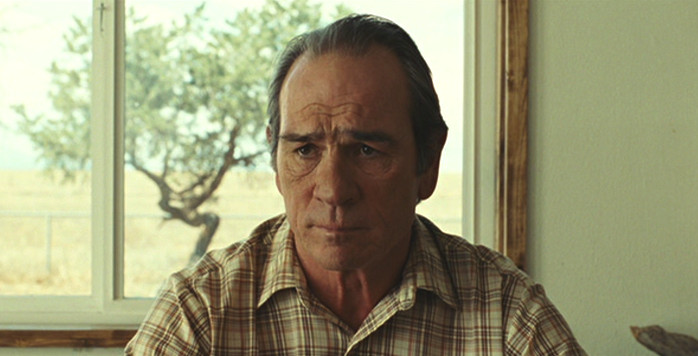
Directors Joel & Ethan Coen’s 2007 Best Picture Oscar winner “No Country for Old Men” follows a hunter in rural Texas as he stumbles on a drug deal gone wrong and millions in cash. The film received both critical and commercial success, but the ending left many confused due to its abruptness and vagueness. In the final scene, retired Sheriff Ed Tom Bell shares two dreams with his wife. In the first, Bell recalls losing some money his father had given him, but does not remember how.
The point of the dream is that whatever the young Bell did with the money was not important enough to remember, a representation of youth. In the second (and more detailed) dream, Bell recounts riding through a cold mountain pass with his father.
Bell’s father goes ahead to make a fire in “all that dark, all that cold.” Bell realizes that he is living in “no country for old men,” as he retires from fighting an evil which he cannot understand, and is contemplating his passage into the afterlife with his father who has died before him.
13. Inception (2010)
“A Spinning Top”
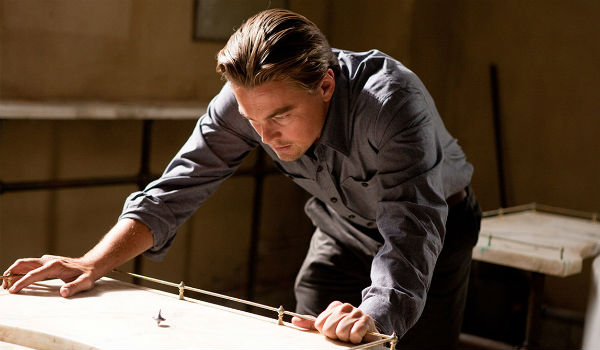
Director Christopher Nolan’s 2010 sci-fi thriller “Inception” stars Leonardo DiCaprio as ‘Cobb’, a professional thief who steals information by going inside of individual’s dreams. Cobb has been given the opportunity to have his criminal record erased if he is able plant an idea into an individual’s subconscious.
Cobb carries with him at all times a top which serves as a totem – an object unique to each individual that acts abnormally in the dream world, and normal in the real world. If the top keeps on spinning Cobb knows that he is in a dream world, if the top eventually falls then he is in the real world.
The final scene in “Inception” shows Cobb as he returns home to his children after being away in the dream world. Cobb spins his top to confirm if he is indeed now in the real world or still in a dream world. Rather than staying to see if the top falls, Cobb walks away to join his children in the garden. The camera returns its focus on the top spinning and the film ends. Cobb is no longer concerned with knowing what’s real and accepts what makes him truly happy as what’s real.
12. Cache (2005)
“Hidden”
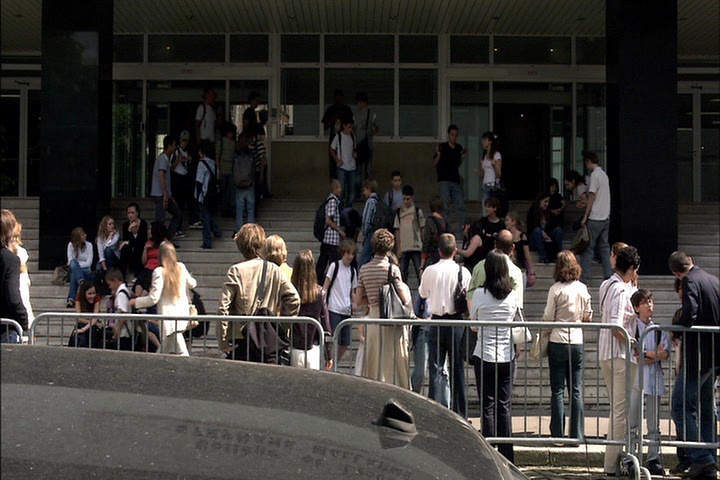
Director Michael Haneke’s 2005 film “Cache” tells the story of an upper-class French family who are terrorized by surveillance tapes received from an unknown person. This family consists of Georges (Daniel Auteuil), his wife Anne (Juliette Binoche), and their son Pierrot. After receiving several videotapes, eventually Georges receives one which leads him to the apartment of Majid, an Algerian man who lived with Georges’ family when they were both children, and who Georges’ parents planned to adopt.
The theme of “Cache” is one of guilt on a personal level and the guilt of a nation with the film serving as an allegory of the historical treatment of Algerians by the French. Georges’ character represents the French middle class which has prospered over the years, and Majid the suppressed immigrant population which has been left behind.
The ending of “Cache” shows a flashback from Georges’ childhood to when Majid is taken away from the family. Majid tries to escape from what appears to be a social services couple, but is eventually caught and forced into the back seat of the car and driven away.
The credits soon roll showing the outside of a school, and the viewer can see Majid’s son and Pierrot having a discussion, and then going their separate ways. Does this mean that Pierrot was in on the plot? Some theories even suspect Haneke himself is sending the videotapes with the ending of Majid’s son and Pierrot reflecting hope for a better future for the next generation in France. Regardless of whom the culprit is, “Cache” is a film which leaves the viewer with more questions than answers.
11. Another Earth (2011)
“A Visit from Earth 2”
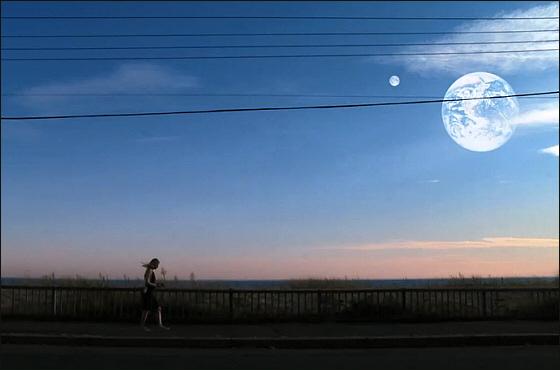
2011’s “Another Earth” is a sci-fi drama in which a duplicate earth is discovered in the Solar system. This duplicate is called ‘Earth 2’, and scientists hypothesize that Earth 2 is a mirror of Earth, including its inhabitants. The inhabitants of Earth 2 are therefore identical to those on ‘Earth 1’ in every way until the night when they learned of the others’ existence.
On that night, young Rhoda Williams (Brit Marling) causes a tragedy, killing composer John Burroughs’ (William Mapother) wife and baby in a car crash. Rhoda realizes that her identical self on the other Earth may not have caused the accident, and gives John a ticket a to visit Earth 2 to see if his wife and son are still alive.
The final scene of “Another Earth” shows Rhoda as she approaches her house and sees Rhoda from Earth 2 in her driveway. The director (Mike Cahill) purposely leaves us with an open ending in the film, leaving it up to the audience interpretation as to how and why the other Rhoda is there. Regardless of how or why she is there, the ending is stunning and offers a form of redemption to the Rhoda we have been following.
10. The Lives of Others (2006)
“Sonata for a Good Man”
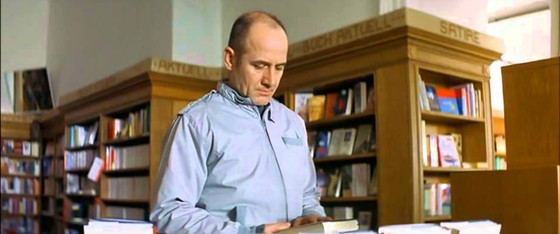
Best Foreign Language Film Oscar Winner “The Lives of Others” tells the story of an officer with the secret police in 1980’s East Germany. The officer, Gerd Wiesler (Ulrich Muhe) code name HGW XX/7 is conducting surveillance on a writer whose allegiance to the state he questions.
The writer, Georg Dreyman (Sebastian Koch) lives in an apartment with his girlfriend and is unaware of the surveillance which is occurring. Wiesler begins to care about the writer and his girlfriend the more he listens in on their lives, and begins to intervene and protect them when possible.
By the end of the film communism has fallen in East Germany and Wiesler is working as a mail carrier. While passing a bookstore Wiesler notices a display for Dreyman’s new book “Sonate vom Guten Menschen”. Wiesler goes inside and opens a copy of the book, discovering it is dedicated to “To HGW XX/7, with gratitude”. Wiesler buys the book, and when asked by the clerk whether he wants the book gift-wrapped, replies “No. This is for me.”
9. Before Sunset (2004)
“Baby, You Are Gonna Miss That Plane”
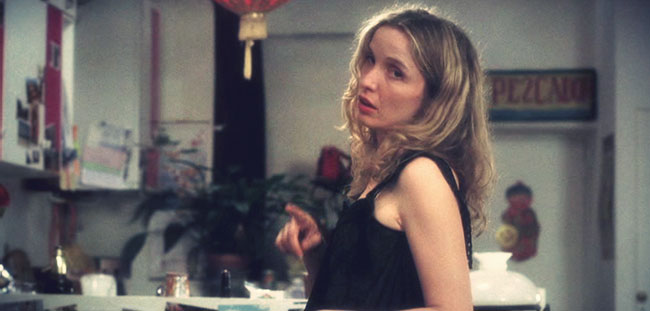
Director Richard Linklater’s 2004 film “Before Sunset” is the sequel to Linklater’s 1995 cult romantic classic, “Before Sunrise”. “Before Sunset” finds its protagonists Jesse and Celine crossing paths in Paris, nine years after spending a passionate day together in Vienna. Jesse (Ethan Hawke) is in Europe to promote his new novel and Celine (Julie Delpy) attends a reading at a local bookstore.
The two spend time catching each other up with the past nine years of their lives before Jesse has to catch a flight back to New York. Feelings are soon rekindled as the two walk and talk, with Jesse saying that his book was inspired by his hope of seeing Celine again.
The two end up at Celine’s apartment where the final scene of the film soon plays out. Jesse puts in a Nina Simone cd and the song “Just in Time” plays. Celine describes seeing Simone in concert, begins dancing, and says “Baby, you are gonna miss that plane”. Jesse smiles and responds, “I know”.
8. Amour (2012)
“An Empty Home”
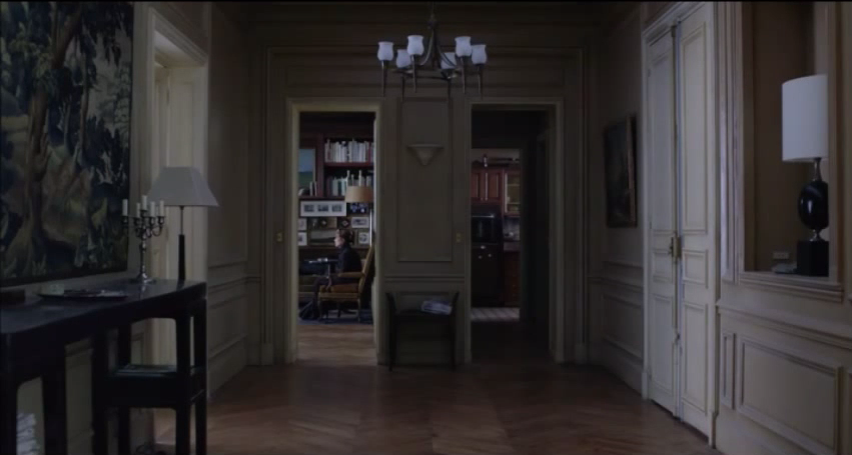
Director Michael Haneke’s 2012 film “Amour” focuses on an elderly couple, Anne and Georges, who are retired music teachers with a daughter who lives abroad. After Anne suddenly has a stroke and suffers a steep physical and mental decline, the couple struggles to maintain their dignity amongst their current situation and dispiriting inevitable future.
The final scene in “Amour” is particularly moving as the couple’s daughter Eva (played by Isabelle Huppert), wanders around the now-empty house, eventually to sit down in the living room. Eva seems to be both remembering her life in the apartment while also being shocked at how quiet and lifeless it now is. One can imagine the feeling of both comfort and emptiness she must be feeling being back inside her parent’s home.